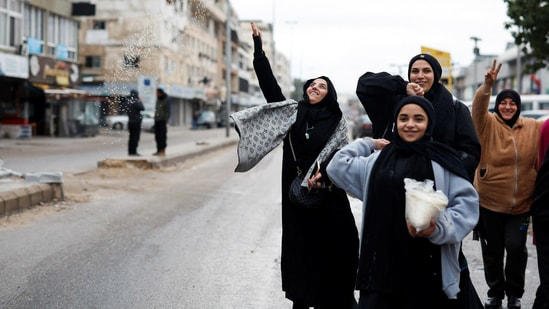India has expressed strong support for the recent ceasefire agreement between Israel and Hezbollah, hoping it will lead to lasting peace in the region. The Ministry of External Affairs (MEA) stated on November 27, 2024, reaffirming India’s long-standing position on the need for “de-escalation, restraint, and a return to dialogue and diplomacy” in the Middle East.
Ceasefire Agreement Announced
The ceasefire, brokered by the United States, aims to end nearly 14 months of hostilities between Israel and Hezbollah. It includes a 60-day truce during which both sides are expected to withdraw their forces from disputed areas along the border.
Call for Stability
The Indian government has expressed hope that this ceasefire will bring broader stability to the region despite ongoing tensions related to the Gaza conflict. India has consistently advocated for peaceful conflict resolution, emphasizing the importance of diplomatic efforts over military solutions.
Historical Context
India has been a vocal proponent of peaceful resolutions in the Middle East for years. This latest development is a crucial step in reducing violence and fostering dialogue among the nations involved. India hopes it will help promote regional peace and stability.
Key Terms of the Israel-Hezbollah Ceasefire
The ceasefire, which began on 27 November 2024, includes several essential terms aimed at halting hostilities between the two parties. Here are the main points of the agreement:
- Duration: The ceasefire will last for an initial 60 days, during which both sides must cease all military operations.
- Withdrawal of Forces:
- Hezbollah: The group must withdraw its forces north of the Litani River, about 40 kilometers from the Israel-Lebanon border.
- Israeli Forces: Israeli troops are required to retreat to their side of the Blue Line, the internationally recognized border between Israel and Lebanon.
- Security Measures:
- The Lebanese Army will deploy thousands of troops to oversee the ceasefire and ensure compliance.
- United Nations peacekeepers will also monitor the situation and assist in maintaining peace.
- International Oversight: An international monitoring panel, led by the United States, will be established to ensure that both sides adhere to the ceasefire terms. Representatives from France and other nations will also be part of the panel.
- Response to Violations: Israel retains the right to respond militarily if Hezbollah violates the agreement. This provision has sparked concerns, as some Lebanese officials have opposed it.
- Restoration of Stability: The goal is to create conditions that allow people on both sides of the border to return safely to their homes and restore peace.
Political Implications for Lebanon
The ceasefire has significant implications for Lebanon’s political landscape:
Strengthening of the Lebanese Army
Under the ceasefire terms, the Lebanese Armed Forces (LAF) will be deployed to southern Lebanon, overseeing Hezbollah’s withdrawal. This could increase the LAF’s legitimacy and reduce Hezbollah’s military influence, leading to a more stable political environment in Lebanon.
Political Shift for Hezbollah
Hezbollah has faced substantial losses during the conflict. The ceasefire may force the group to reassess its military stance, potentially shifting its focus toward political engagement. This shift could weaken Hezbollah’s support base, especially if its role as a defender of Lebanon is questioned.
Impact on Regional Dynamics
The ceasefire could alter Lebanon’s relationship with Iran, Hezbollah’s primary backer. If Hezbollah is weakened, Iran might have to adjust its strategy in Lebanon and the region. Additionally, Israel may feel more confident addressing other regional threats without fearing retaliation from Lebanon.
Humanitarian Concerns
The ongoing conflict has left approximately 1.2 million people displaced in Lebanon. The ceasefire offers a respite for these populations, allowing them to return home and rebuild their lives. Public sentiment is shifting towards support for peaceful resolutions, which may pressure political leaders to prioritize stability over continued conflict.
While the ceasefire offers immediate relief from violence, its long-term impact on Lebanon’s political situation will depend on how well the Lebanese government can assert control over security matters. It also hinges on Hezbollah’s adaptation to its new role and whether other political factions in Lebanon can promote stability. The situation remains fluid, and future developments will shape Lebanon’s trajectory in the coming years.



